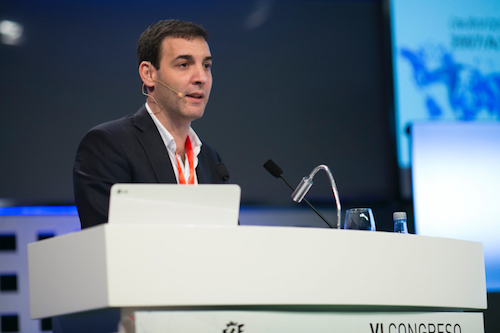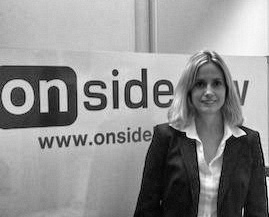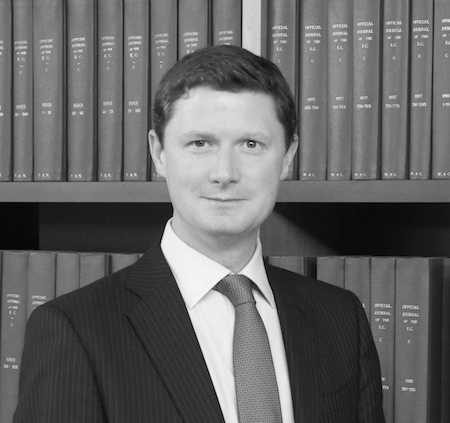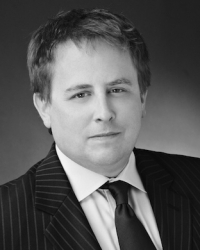Key sports law cases and developments to watch in 2015
Monday, 05 January 2015There were many exciting legal and regulatory developments in sport in 2014 (see Key sports law cases of 2014). In this article the LawInSport Advisory and Editorial Board Members provide an expert opinion of the key sports law cases and developments to watch in 2015.
Mark Hovell, Head of Sport, Mills & Revee & CAS Arbitrator
 There’s so much scrutiny now on the administration of sport, I see governance as a big topic. I can’t believe FIFA Elections, World Cup bids, corruption, etc., won’t be prominent again in 2015.
There’s so much scrutiny now on the administration of sport, I see governance as a big topic. I can’t believe FIFA Elections, World Cup bids, corruption, etc., won’t be prominent again in 2015.
Prof. Jack Anderson, Professor of Law, Queen’s University

The Russian doping scandal and other issues relating to possible corruption at the IAAF will now by investigated by the IAAF’s ethics committee lead by the doyen of UK sports law, Michael Belloff QC. Note also the litigation instigated by Floyd Landis as a whistle-blower and the US Department of Justice against Lance Armstrong under the Federal False Claims Act, which is the US government’s primary civil remedy to redress false claims for government funds and property under government contracts (in this case, the falsely premised sponsorship of the US Postal team). Substantive hearings in this cases are due in 2015 and Armstrong could face missions of dollars in fines.
Apart from the whistle blowing theme, 2015 will be the year of anniversaries in sports law and notably: the 100 year anniversary of an infamous match fix between Liverpool FC and Manchester United; the 30 year anniversary of the Heysel Stadium disaster and, of course, the 20 year anniversary of Bosman recently rated by the European Law Journal as one of the most influential judgments in the entire history of the Court of Justice of the European Union.
Ariel Reck, Sports Lawyer, Argentina
 It is definitely the ban FIFA decided to impose against TPO, TPI or “economic rights”. The conflictive aspects of this matter are the way the ban will be implemented (if there will be a transitional period and how long it will be) and if any of the affected parties will pursue judicial measures at national or European level against it.
It is definitely the ban FIFA decided to impose against TPO, TPI or “economic rights”. The conflictive aspects of this matter are the way the ban will be implemented (if there will be a transitional period and how long it will be) and if any of the affected parties will pursue judicial measures at national or European level against it.
Paul Greene, Partner, Global Sports Advocates
 The lawsuit pending in Canada to determine whether the women’s world cup will be played on artificial turf or natural grass and the implementation of the new version of the World Anti-Doping Code.
The lawsuit pending in Canada to determine whether the women’s world cup will be played on artificial turf or natural grass and the implementation of the new version of the World Anti-Doping Code.
Daniel Geey, Senior Associate, Fieldfisher
 The Premier League's domestic live broadcasting rights auction will be decided in the first few months of 2015. That in itself is big news with the previous global rights value reaching over £5.5bn for its member clubs. The regulatory blip on the horizon comes in the form of Virgin Media's complaint to the UK regulator Ofcom and it has decided to open an investigation into the way that the Premier League sells its lucrative live rights. This comes at a tricky time for the Premier League and its member clubs when they begin to negotiate with domestic broadcasters BT and Sky among others, whilst dealing with an investigation that could classify their current sales strategy as anti-competitive. Not only will it be fascinating to see how the competition between BT and Sky plays out and how much the Premier League will sell their live rights for, but the Ofcom investigation will have to be carefully considered and contractual clauses inserted to ensure any material change in the way the rights need to be sold in the future is adequately catered for.
The Premier League's domestic live broadcasting rights auction will be decided in the first few months of 2015. That in itself is big news with the previous global rights value reaching over £5.5bn for its member clubs. The regulatory blip on the horizon comes in the form of Virgin Media's complaint to the UK regulator Ofcom and it has decided to open an investigation into the way that the Premier League sells its lucrative live rights. This comes at a tricky time for the Premier League and its member clubs when they begin to negotiate with domestic broadcasters BT and Sky among others, whilst dealing with an investigation that could classify their current sales strategy as anti-competitive. Not only will it be fascinating to see how the competition between BT and Sky plays out and how much the Premier League will sell their live rights for, but the Ofcom investigation will have to be carefully considered and contractual clauses inserted to ensure any material change in the way the rights need to be sold in the future is adequately catered for.
Sean Corbett, Brand Protection Manager, Formula One Management Limited
 Expect unconscionable contracts and social media to dominate whether it be copyrighted material, use of trade marks in sponsored ads on social media platforms or disciplinary issues from tweeters who tweet before engaging their brains. Who said social media is a fad?
Expect unconscionable contracts and social media to dominate whether it be copyrighted material, use of trade marks in sponsored ads on social media platforms or disciplinary issues from tweeters who tweet before engaging their brains. Who said social media is a fad?
Alfonso Valero, Principal Lecturer
 European developments in the area of gambling and betting; the European Commission is adopting some cautious steps towards soft harmonisation. After its 2012 recommendation, it has promoted different studies in the area and it has liaised with different Member States about their gambling framework.
European developments in the area of gambling and betting; the European Commission is adopting some cautious steps towards soft harmonisation. After its 2012 recommendation, it has promoted different studies in the area and it has liaised with different Member States about their gambling framework.
Action has been brought against Sweden by the Commission on the basis of lack of compliance of Sweden in their regulation of online poker games. This case will hopefully define the limits of article 56 TFEU (regulating the freedom to provide services within the territory of the EU) in relation to gambling services. There are other cases before the Court of Justice of the European Union in relation to gambling (e.g. Berlington Hungary, Case C-98/14, about taxation over slot machines), but the Swedish case is, in my view, the one that deserves closest attention. The case is likely to be different from Liga Portuguesa de Futebol Profissional and Bwin International (Liga Portuguesa de Futebol Profissional v Departamento de Jogos da Santa Casa da Misericordia de Lisboa (C-42/07) [2009] E.C.R. I-7633, [2010] 1 C.M.L.R. 1) in that Portugal had adopted a position of monopoly in relation to gambling and betting, whereas the Swedish model seems to allow private operators, but treats them differently. It may demonstrate that the principle of proportionality is not just an academic concept, but very much an inspiring principle.
Prof. Mark James, Professor of Laws, Northumbria University
 The ongoing US litigation on the potential liability of sports governing bodies for the brain injuries caused by multiple concussive events to current and former players will continue to influence similar claims worldwide. It is likely that other contact sports, particularly ice hockey and rugby union, will see similar claims brought against them for their failure to take seriously enough the effect of concussion on players in their sports. As this threat becomes increasingly real, changes to the ways that these sports are governed and played will also be required. Following in the footsteps of the NFL, more detailed and more interventionist concussion protocols overseen by independent and appropriately qualified medical personal will be introduced, as will increased mandatory recovery periods during which the affected player will be barred from competing and training. The culture of ‘if it’s not bleeding you’re not hurt’ will come to an end and players, coaches and administrators will begin to accept the seriousness of head injuries that has been lacking to date.
The ongoing US litigation on the potential liability of sports governing bodies for the brain injuries caused by multiple concussive events to current and former players will continue to influence similar claims worldwide. It is likely that other contact sports, particularly ice hockey and rugby union, will see similar claims brought against them for their failure to take seriously enough the effect of concussion on players in their sports. As this threat becomes increasingly real, changes to the ways that these sports are governed and played will also be required. Following in the footsteps of the NFL, more detailed and more interventionist concussion protocols overseen by independent and appropriately qualified medical personal will be introduced, as will increased mandatory recovery periods during which the affected player will be barred from competing and training. The culture of ‘if it’s not bleeding you’re not hurt’ will come to an end and players, coaches and administrators will begin to accept the seriousness of head injuries that has been lacking to date.
Chris Duffy, Solicitor, IMG
 That case could almost double as the answer to the second part of the question however 2015 will also be a big year in the world of sports agency and two cases are already highly anticipated. Firstly, the outcome of the Association of Football Agents’ appeal to the European Commission about the proposed new FIFA Regulations on Working with Intermediaries. Although essentially deregulating the landscape, the suggested commission cap has proved controversial and the Commission’s findings will certainly assist national governing bodies such as the FA in deciding quite how to implement the regulations and may even require a rethink from FIFA. Secondly, 2015 should also see a conclusion to the ongoing action between Rory McIlroy and his former agents, Horizon Sports Management. Leaving aside the fascinating Graeme McDowell and Nike angles, the judgement should hopefully further clarify the general agency landscape, building on the infamous Rooney v Proactive case and maybe touching on the recent trend for sports stars to create their own management companies.
That case could almost double as the answer to the second part of the question however 2015 will also be a big year in the world of sports agency and two cases are already highly anticipated. Firstly, the outcome of the Association of Football Agents’ appeal to the European Commission about the proposed new FIFA Regulations on Working with Intermediaries. Although essentially deregulating the landscape, the suggested commission cap has proved controversial and the Commission’s findings will certainly assist national governing bodies such as the FA in deciding quite how to implement the regulations and may even require a rethink from FIFA. Secondly, 2015 should also see a conclusion to the ongoing action between Rory McIlroy and his former agents, Horizon Sports Management. Leaving aside the fascinating Graeme McDowell and Nike angles, the judgement should hopefully further clarify the general agency landscape, building on the infamous Rooney v Proactive case and maybe touching on the recent trend for sports stars to create their own management companies.
Nick De Marco, Barrister, Blackstone Chambers
 A number of issues in football, in particular, are likely to come to the fore, not least with respect to the de-regulation of football agents and financial fair play, and the impact of Competition law on these and other areas.
A number of issues in football, in particular, are likely to come to the fore, not least with respect to the de-regulation of football agents and financial fair play, and the impact of Competition law on these and other areas.
Jon Walter, Senior Associate, Charles Russell Speechlys
 I will be watching the auction process for Premier League TV rights closely as it plays out in parallel with Virgin Media’s complain to Ofcom as to the sale of Premier League rights in the UK. In terms of numbers, there is no doubt that this will be another blockbuster rights sale and the final value and the carve-up between Sky and BT Sport will be of interest enough in itself from a commercial perspective. But for sports lawyers out there, the real juice will be if Virgin Media’s complaint has legs – rather than simply being a populist, underdog complaint about the lack of live matches on our screens – and Ofcom takes seriously its complaints as to the Premier League’s rights packages being incompatible with European competition law. The Premier League has made its statement of intent by pressing ahead with the launch of the auction ahead of any further Ofcom announcement on the investigation. What will the regulator make of it all?
I will be watching the auction process for Premier League TV rights closely as it plays out in parallel with Virgin Media’s complain to Ofcom as to the sale of Premier League rights in the UK. In terms of numbers, there is no doubt that this will be another blockbuster rights sale and the final value and the carve-up between Sky and BT Sport will be of interest enough in itself from a commercial perspective. But for sports lawyers out there, the real juice will be if Virgin Media’s complaint has legs – rather than simply being a populist, underdog complaint about the lack of live matches on our screens – and Ofcom takes seriously its complaints as to the Premier League’s rights packages being incompatible with European competition law. The Premier League has made its statement of intent by pressing ahead with the launch of the auction ahead of any further Ofcom announcement on the investigation. What will the regulator make of it all?
John Wolohan, Attorney and Professor of Sports Law, David B. Falk College of Sport and Human Dynamics at Syracuse University
 The case I will be watching is Jenkins, Moore, Perry and Tyndall v. NCAA, better known as the Kessler case. While the O’Bannon v. NCAA case examined the issue of whether colleges and universities violated federal antitrust law by refusing to compensate their athletes for the use of their images and likenesses, the Kessler case seeks to challenge the entire collegiate sports model. In particular, the case claims that by only offering students a scholarship, that includes tuition, room and board, books, and a few other incidentals, colleges and universities have conspired to cap the wages of athletes. This salary cap, the lawsuit argues, is a violation of federal antitrust law.
The case I will be watching is Jenkins, Moore, Perry and Tyndall v. NCAA, better known as the Kessler case. While the O’Bannon v. NCAA case examined the issue of whether colleges and universities violated federal antitrust law by refusing to compensate their athletes for the use of their images and likenesses, the Kessler case seeks to challenge the entire collegiate sports model. In particular, the case claims that by only offering students a scholarship, that includes tuition, room and board, books, and a few other incidentals, colleges and universities have conspired to cap the wages of athletes. This salary cap, the lawsuit argues, is a violation of federal antitrust law.
Since the court in O’Bannon already ruled that the NCAA violated federal antitrust law by preventing athletes from receiving compensation for their images, this case could completely change the relationship between athletes and their schools/employers.
Kevin Carpenter, Solicitor, Hill Dickinson
 The governance of some of the world's most high profile sports is going through turbulent times at the moment and it is possible there will be significant changes in 2015. FIFA very rarely seem to be out of the headlines in this regard and with it being an election year for the Presidency there is genuine thought that Mr Blatter may not survive the drama which has unfolding surrounding the Michael Garcia report into the voting for the 2018 and 2022 World Cups. It will be interesting to see what further pressure for change will be exerted from a meeting of interested stakeholders and experts at the European Parliament in Brussels on the 21 January 2015. The other sport who's governance will remain under the spotlight in 2015 is Formula 1® following the high profile collapse of two teams and in-fighting between the others on various issues. The reign of the irascible Bernie Ecclestone appears to be drawing to a close with the sports's majority shareholder CVC looking to sell the business. In his personal capacity, Mr Ecclestone is facing a further civil lawsuit about the previous sale of the sport to CVC, after having settled the criminal case brought against him. Indeed, despite Mr Ecclestone's undoubted success in commercialising F1 during his time in charge, there seems to be a great deal of uncertainty about what lies in the future given all the expertise and knowledge of how to run the sport lies in him and him alone. This absence of certainty will almost certainly provide many interesting legal disputes.
The governance of some of the world's most high profile sports is going through turbulent times at the moment and it is possible there will be significant changes in 2015. FIFA very rarely seem to be out of the headlines in this regard and with it being an election year for the Presidency there is genuine thought that Mr Blatter may not survive the drama which has unfolding surrounding the Michael Garcia report into the voting for the 2018 and 2022 World Cups. It will be interesting to see what further pressure for change will be exerted from a meeting of interested stakeholders and experts at the European Parliament in Brussels on the 21 January 2015. The other sport who's governance will remain under the spotlight in 2015 is Formula 1® following the high profile collapse of two teams and in-fighting between the others on various issues. The reign of the irascible Bernie Ecclestone appears to be drawing to a close with the sports's majority shareholder CVC looking to sell the business. In his personal capacity, Mr Ecclestone is facing a further civil lawsuit about the previous sale of the sport to CVC, after having settled the criminal case brought against him. Indeed, despite Mr Ecclestone's undoubted success in commercialising F1 during his time in charge, there seems to be a great deal of uncertainty about what lies in the future given all the expertise and knowledge of how to run the sport lies in him and him alone. This absence of certainty will almost certainly provide many interesting legal disputes.
Kendrah Potts, Senior Associate, Onside Law
 One of the most interesting areas to watch in 2015 will be how tribunals resolve the issues presented by the 2015 WADA Code. A lot of the focus will be on the new provisions on sanctions in Article 10. How tribunals apply the new “intentional” test will determine whether the 2015 Code in fact results in harsher sanctions for deliberate cheats (one of the drivers behind the revised Code). Will tribunals continue to apply the No Significant Fault or Negligence standard in the same way under the new provision for reduction of sanctions for Specified Substances? What will fall under the definition of Contaminated Products and what constitutes a "reasonable Internet search"? And how far will WADA be prepared to go in exercising its new powers in respect of Substantial Assistance?
One of the most interesting areas to watch in 2015 will be how tribunals resolve the issues presented by the 2015 WADA Code. A lot of the focus will be on the new provisions on sanctions in Article 10. How tribunals apply the new “intentional” test will determine whether the 2015 Code in fact results in harsher sanctions for deliberate cheats (one of the drivers behind the revised Code). Will tribunals continue to apply the No Significant Fault or Negligence standard in the same way under the new provision for reduction of sanctions for Specified Substances? What will fall under the definition of Contaminated Products and what constitutes a "reasonable Internet search"? And how far will WADA be prepared to go in exercising its new powers in respect of Substantial Assistance?
There will also be questions for WADA and sports governing bodies as to how the new offence of Prohibited Association will work in practice.
And, finally, how will sports governing bodies deal with the various provisions in the 2015 Code that require them to address certain conduct in their disciplinary rules (for example prohibiting Use or Possession by Athlete Support Personnel)?
Benoit Keane, European Lawyer & Principal, Keane Legal
 In the European Union, 2015 will be the year that sports media rights firmly return to the agenda. The new President of the European Commission (EC) Jean-Claude Juncker has made reform of the European digital economy one of his priorities. The person he has put in charge is EC Vice-President Ansip, the former Prime Minister of Estonia (a country well-known for its digital economy). He has wasted little time in declaring geo-blocking of content along national lines to be contrary to the European internal market. Reform of European copyright law is now expected. In addition, DG Competition is conducting an investigation into online access of films that could also affect sports rights-holders. Nor are the investigations confined to the EU-level: the UK media regulator, OFCOM, has just launched an investigation into the manner in which the FA Premier League sells its media rights. So in the year ahead it will be important for sports rights-holders to show how their rights models ensure the sustainable financing of sport at all levels.
In the European Union, 2015 will be the year that sports media rights firmly return to the agenda. The new President of the European Commission (EC) Jean-Claude Juncker has made reform of the European digital economy one of his priorities. The person he has put in charge is EC Vice-President Ansip, the former Prime Minister of Estonia (a country well-known for its digital economy). He has wasted little time in declaring geo-blocking of content along national lines to be contrary to the European internal market. Reform of European copyright law is now expected. In addition, DG Competition is conducting an investigation into online access of films that could also affect sports rights-holders. Nor are the investigations confined to the EU-level: the UK media regulator, OFCOM, has just launched an investigation into the manner in which the FA Premier League sells its media rights. So in the year ahead it will be important for sports rights-holders to show how their rights models ensure the sustainable financing of sport at all levels.
John Mehrzad, Head of Sport, Littleton Chambers
 I look forward with interest to the Commission’s decision (and any further EU-level decision) on whether FIFA’s proposed “recommendation” of a 3% cap on player agents’ fees will be found to be anti-competitive. Time is, though, ticking, as the new regulations are due to be implemented on 1 April 2015
I look forward with interest to the Commission’s decision (and any further EU-level decision) on whether FIFA’s proposed “recommendation” of a 3% cap on player agents’ fees will be found to be anti-competitive. Time is, though, ticking, as the new regulations are due to be implemented on 1 April 2015
Nina Goolmali, Head of Sport, 2 Temple Gardens
 Continuing debate arising out of the content of the Consensus Statement on Concussion in Sport and in particular whether management protocols are being consistently and effectively adhered to in rugby and football.
Continuing debate arising out of the content of the Consensus Statement on Concussion in Sport and in particular whether management protocols are being consistently and effectively adhered to in rugby and football.
Oliver Rumsey, Senior Legal Counsel, MERCEDES AMG PETRONAS
 The integrity of sports governing bodies will be a very interesting area to watch. I’ve been fascinated by developments in relation to FIFA and the Garcia Report. I can’t help but feel that there are more skeletons come out of more closets, not just in football but also in other sports. As fans seem less willing than before to simply accept apparent misconduct and corruption as just being “part of the game,” it will be interesting to see how sports’ governing bodies react. Will they take the turning tide of public opinion seriously and look to increase transparency and “clean house” or will they choose to try and maintain the somewhat covert (and sometimes downright clandestine) status quo in the hope that the spot light of public attention will soon pass them by? The answer to this question must surely, in part at least, lie in the hands of sports’ legal advisors and whether they recognise and embrace the opportunity to be open with fans or whether they elect to remain at arm’s length.
The integrity of sports governing bodies will be a very interesting area to watch. I’ve been fascinated by developments in relation to FIFA and the Garcia Report. I can’t help but feel that there are more skeletons come out of more closets, not just in football but also in other sports. As fans seem less willing than before to simply accept apparent misconduct and corruption as just being “part of the game,” it will be interesting to see how sports’ governing bodies react. Will they take the turning tide of public opinion seriously and look to increase transparency and “clean house” or will they choose to try and maintain the somewhat covert (and sometimes downright clandestine) status quo in the hope that the spot light of public attention will soon pass them by? The answer to this question must surely, in part at least, lie in the hands of sports’ legal advisors and whether they recognise and embrace the opportunity to be open with fans or whether they elect to remain at arm’s length.
Jeffrey G. Benz, 4 New Square, London, and Agency for Dispute Resolution, Los Angeles
 In 2015, the recent revelations about alleged systematic doping in Russia will reach a crescendo when the WADA-appointed commission, led by Dick Pound, finishes its investigation.
In 2015, the recent revelations about alleged systematic doping in Russia will reach a crescendo when the WADA-appointed commission, led by Dick Pound, finishes its investigation.
In addition, in 2015, the Cycling Independent Reform Commission, formed in 2014, is due to issue its report sometime in the first half of the year. Among many other things, before them is the issue of whether Lance Armstrong will receive a reduction in his USADA-issued lifetime ban.
The development of the lex sportiva in 2015 will be interesting.
Jake Cohen, US Attorney & Executive Contributor, LawInSport

There are brilliant legal minds on both sides of the issue, and it would appear to be a matter of when, not if, a legal challenge is mounted.
If the ban does end up taking effect in May, then professional football in South America will undoubtedly face a dramatic upheaval, with up to 90% of footballers in Brazil's top division involved with third-party investors. How will it respond and evolve to the new landscape? Will FIFA classify Major League Soccer's (MLS) single-entity structure as third-party ownership? If it does, will MLS continue to steadfastly refuse to abandon the single-entity structure? If so, what then?
With so many of the best footballers in the world coming from South America and, with the help of third-party investors, using Portugal as a way station before making the leap to the world's biggest clubs, what happens to the South American talent pipeline? With expenditures on infrastructure costs and youth academies exempt from UEFA's Financial Fair Play breakeven calculations, will the wealthy European clubs start building youth academies all over South America? Will Porto, Benfica, and Sporting Lisbon be able to find new ways to remain competitive in the Champions League or is this the beginning of the end for these clubs on the European stage?
These are just a few of the many questions surrounding the pending TPO ban, and how they're answered will have massive effects on the sport.
Many of the LawInSport Advisory & Editorial Board members will be speaking at the LawInSport Conference on the 26 February 2015. To find out more and to book your place click here.
- Agents Anti-Corruption Anti-Doping Athletics Broadcasting European Court of Justice FIFA Football Golf Governance Intellectual Property intermederies International Association of Athletics Federations (IAAF) National Football League (NFL) OFCOM Player Rights Player Welfare Premier League Regulation Social Media The FA Third Party Ownership World Anti-Doping Agency (WADA)




